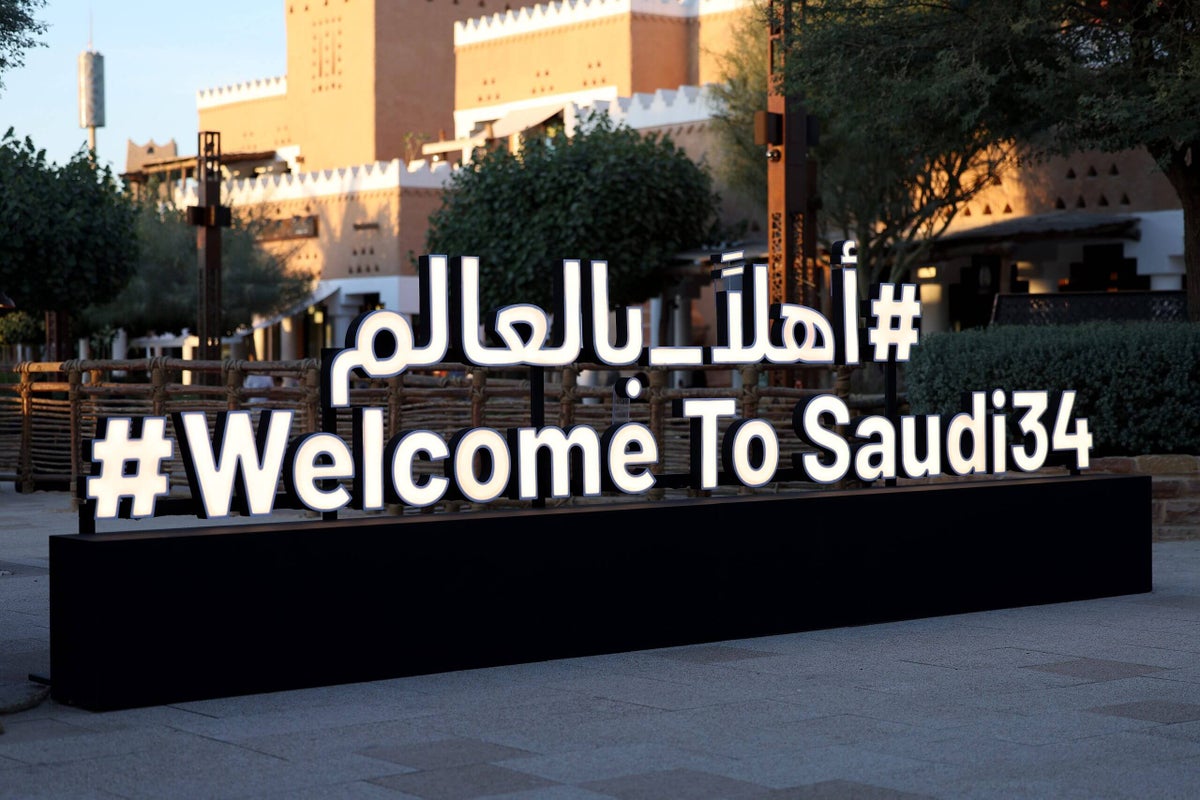An international charity has warned multinational companies bidding for World Cup-related projects in Saudi Arabia — and any migrant workers considering going to the kingdom between now and 2034 — that the Gulf state remains an extremely risky environment for labour rights.
In an article published on the Business & Human Rights Resource Centre’s website to mark Wednesday’s International Migrants Day, senior researcher Isobel Archer wrote that “companies seeking to cash in on a Saudi World Cup must be alert to these risks”.
The charity has been tracking reports of abuse of migrant workers since 2022 and it has found that despite only accounting for six per cent of the global population, the Middle East and North Africa region is responsible for a third of all cases in its database, with 94 per cent of those coming from the six Gulf Cooperation Council countries: Bahrain, Kuwait, Oman, Qatar, Saudi Arabia and the United Arab Emirates.
Saudi Arabia, by far the largest of the Gulf states, accounts for 82 of the region’s 490 cases, with numerous reports of wage theft, illegal recruitment fees, verbal and physical abuse, inadequate living standards, barriers to legal remedy and health and safety breaches.
Speaking to The Athletic, Archer said: “Our data lays bare the daily experience of migrant workers in Saudi Arabia, including those toiling in pursuit of mega-projects like (new city) NEOM and the Aramco Stadium (the proposed World Cup venue in Khobar), touted by the Saudi government as symbols of the country’s development.”

GO DEEPER
FIFA confirms 2030, 2034 World Cup host nations: All you need to know
Noting that Saudi-based companies “are among the most opaque globally”, Archer said construction workers are particularly at risk, although cleaning, maintenance and security staff are others “who will be on the frontline welcoming fans and footballers” in 2034.
“The financial benefits of Saudi 2034 are huge — for FIFA, sponsors, local and multinational companies — but it is set to come at a devastating price for some of the world’s most vulnerable workers,” said Archer.
Her warning is one of many that has been issued since FIFA confirmed last week that the oil-rich state will host the world’s most popular sporting event in 2034.
A coalition of 21 human rights groups, fans’ representatives and trade unions published a joint statement following the Saudi bid’s coronation that accused FIFA of being “reckless” with human lives.
“FIFA knows workers will be exploited and even die without fundamental reforms in Saudi Arabia, and yet has chosen to press ahead regardless,” said Steve Cockburn, head of labour rights and sport at one of the statement’s co-signatories, Amnesty International.

GO DEEPER
Why Saudi Arabia’s 2034 World Cup is controversial
In an op-ed published by the Architects Journal on Monday, British architect Jeremy Till strongly criticised those in the industry who have already rushed to the kingdom looking for commissions, saying the only ethical stance they should take is to boycott Saudi Arabia. Similar calls were made ahead of the 19th annual Internet Governance Forum, a United Nations-backed conference being held in the Saudi capital Riyadh this week.
“Saudi authorities have engaged in a sustained assault on online freedom of expression, yet are now playing hosts to a global internet conference,” said Human Rights Watch’s Saudi Arabia researcher Joey Shea in an article published on the charity’s website. “If the Saudi government is indeed serious about digital rights, the authorities should immediately release the scores of activists imprisoned for online freedom of expression.”
FIFA president Gianni Infantino believes giving the World Cup to countries like Qatar in 2022 and Saudi Arabia for 2034 can be “a unique catalyst…for positive social change and unity.” Saudi government officials have repeatedly talked about the progress the kingdom has made on a variety of fronts in recent years, including labour rights, and promised to comply with all of FIFA’s rules. They also point to the glowing technical assessment FIFA gave its bid earlier this month.

GO DEEPER
Might Saudi Arabia actually be a good choice for a men’s World Cup?
(Abdullah Ahmed/Getty Images for Saudi Arabian Football Federation)

